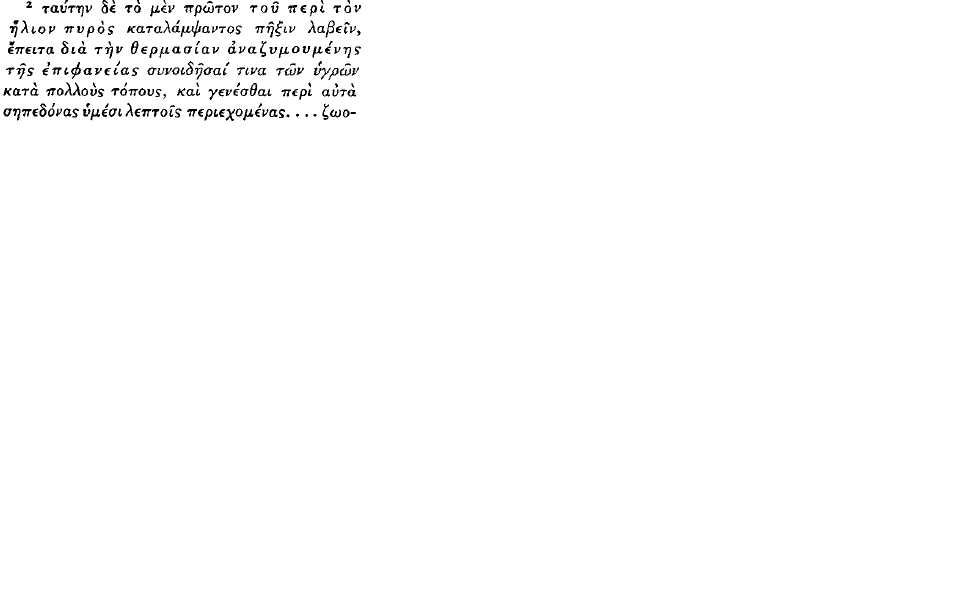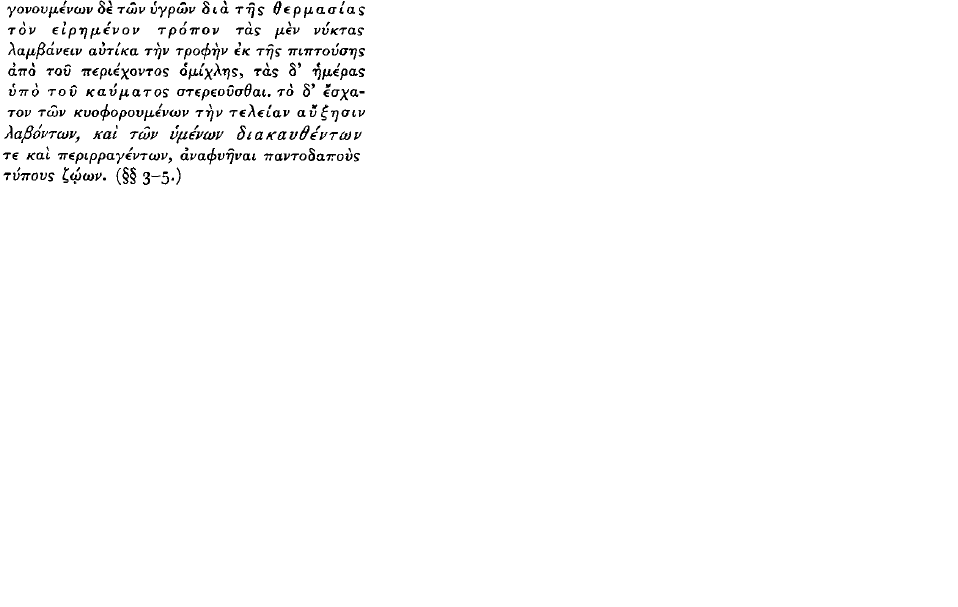No CrossRef data available.
Published online by Cambridge University Press: 11 February 2009
The argument as far as 205 is simply and clearly laid out by Munro, but later editors have rejected his explanation, and proposed more involved analyses. The first purpose of this paper is to support the simple interpretation and refute later complications.
The only serious difficulty lies in the mention of plants in line 189. Without this line the argument would run as follows. ‘Nothing can move upwards of its own accord’ (184–6). ‘Don&t be misled by the atoms of flames, for they spring into being and take their increase in an upward direction, although all weights, left to themselves, move downwards’ (187–90). ‘Nor must we believe that when fire leaps up to the roofs of houses …, it does so of its own accord’ (191–3). Now the two analogicalarguments: ‘For blood spurts up into the air and timbers leap out of the water, yet everybody agrees that their weights left to themselves move downwards’ (194–202). Now the conclusion repeating the original proposition: ‘This is how it must be that flames too rise, forced out upwards through the air although their weights, left to themselves, move downwards’ (203–5).
page 95 note 1 An early draft of the first part of this paper was criticized by a group of my colleagues in Edinburgh, and I am immensely indebted to them for their help, particularly at the end to K. Wellesley and M. C. Stokes, and here to D. B. Robinson.
page 97 note 1 Here I translate abruptis nubibus ignes, the reading of our oldest authority, Macro- bius (6. i. 27), who cites the line in this form as the model for
ingeminant abruptis nubibus ignes
(Aen. 3. 199).
This sense of abrumpere, to tear apart, is well supported in T.L.L. (i. 140. 65 ff.)Google Scholar, and in Lucretius& description of lightning in Book 6 the tearing of the clouds is frequently men- tioned (203, 215, 216, 285, 297). The editors follow OQ, in reading abrupti, but I can find no other mention of this idea that lightning is broken off or torn off from the clouds.
page 101 note 1 For aetas infantum meaning ‘the young’ cf. Cicero, Pro Caelio 8, and 18; and cf. Austin on 10.
page 101 note 2 
